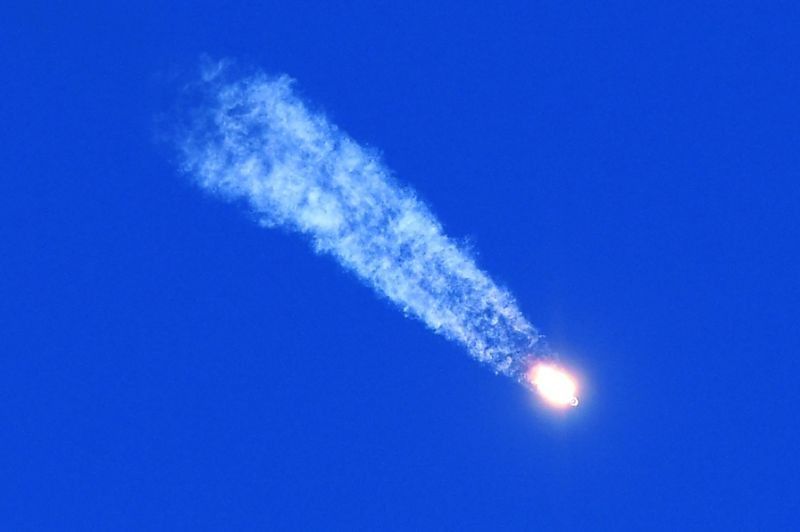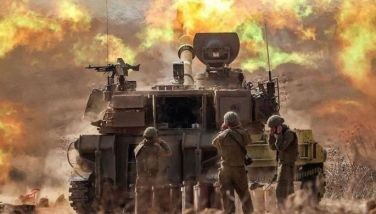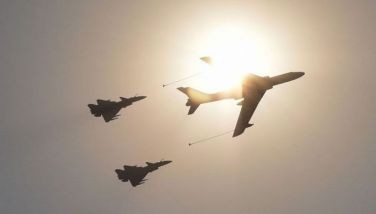Soyuz launch failed due to assembly problem: Russia

Korolyov (Russia) - Russia said on yesterday the launch of a Soyuz rocket failed last month because of a sensor that was damaged during assembly at the Baikonur cosmodrome but insisted that the spacecraft remains reliable.
Russia, the only country able to ferry astronauts to the International Space Station, suspended all launches after a Soviet-designed Soyuz rocket failed on October 11 just minutes after blast-off -- the first such incident in the history of post-Soviet space travel.
Oleg Skorobogatov, the head of the commission that probed the accident, said the flight was aborted because part of a sensor that indicates the separation of the stages of the rocket was damaged during assembly at the Baikonur cosmodrome in Kazakhstan.
"The cause of a non-standard separation" was a "deformation" of a part during assembly, Skorobogatov told a news conference at Russia's mission control outside Moscow.
The Soyuz rockets are assembled at Baikonur after arriving by train from Russia's Progress plant in the Volga city of Samara.
Skorobogatov said the deformation caused a booster on the first stage to malfunction and collide with a fuel tank which "led to the loss of stabilisation" and triggered an emergency landing.
He was flanked by the heads of Russia's space manufacturing plants and research centres, who sought to put an optimistic spin on the accident and stress that constructive steps were being taken to prevent a repeat incident.
Representatives of NASA and the European Space Agency also attended the rare press conference at the mission control centre in the town of Korolyov where staff constantly monitor the ISS.
"The aim of today's event is for the public to find out everything," said moderator Nikolai Sevastyanov of Roscosmos's TsNIIMash research institute.
A video recorded by a Soyuz camera and published by the Russian space agency showed the rocket rapidly changing direction and spinning around after one of the four boosters failed to separate in synch with the others.
During the aborted launch, Russian cosmonaut Aleksey Ovchinin and US astronaut Nick Hague made an emergency landing and escaped unharmed.
After the successful emergency landing both the Russian and US space agencies praised the Soviet-designed rocket, with NASA administrator Jim Bridenstine saying last month US astronauts will continue using the Soyuz and praising its "resilience".
The Soyuz "remains the most reliable rocket," Dmitry Baranov, director of Progress, the manufacturer of the carrier rockets, said yesterday.
- A guilty party -
Skorobogatov, who heads TsNIIMash, a state research institute specialising in spacecraft and missile development, said the commission ruled out a manufacturing problem.
"The only place where it could happen was during rocket assembly at the Baikonur cosmodrome," he said.
Skorobogatov warned that two other rockets -- one of which was also at Baikonur -- may have problems due to assembly.
The other was now in Kourou, a space port in French Guiana which Russia uses for commercial launches of satellites, he said.
Russian officials pledged to improve oversight during assembly of the spacecraft.
"We have to draw conclusions from every emergency situation," said Roscosmos deputy director Alexander Lopatin, adding that Russia has discussed the findings of the probe with NASA.
"In general, the reputation of our space industry will not be hurt by this case, because we will make sure that these situations don't happen (again)," he said.
He said law enforcement authorities will work out who is guilty of the assembly mistake.
"Every accident has a name and surname (of the guilty party)," he said, adding that space industry plants had received orders to "boost workplace and technical discipline."
Baronov said the commission recommended retesting and additional training for assembly workers at Baikonur.
The Russian space agency said on Wednesday it hoped to launch a new crew for the International Space Station on December 3.
On the rocket destined for the ISS will be Russian cosmonaut Oleg Kononenko, Canadian astronaut David Saint-Jacques, and NASA's Anne McClain.
The trio had originally been scheduled to blast off on December 20, but had their trip brought forward after the failed October 11 launch.
- Latest
- Trending
































